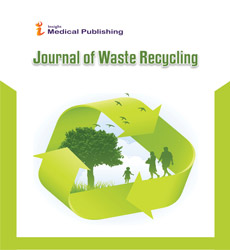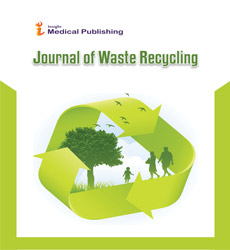Development of an Environmental Planning Model for the Surface Water Resources Quality Considering their Seasonal Clinical Variability through Computational Implementation
Rodríguez Miranda JP*
Department of Environment and Natural Resources, University Francisco Jose de Calda, Bogotá D.C, Colombia
- *Corresponding Author:
- Rodríguez Miranda JP
Department of Environment and Natural Resources
University Francisco Jose de Calda
Bogotá, Colombia
Tel: (57)-1-3239300
E-mail: jprodriguezm@udistrital.edu.co
Received Date: April 25, 2018; Accepted Date: May 10, 2018; Published Date: May 17, 2018
Citation: Miranda JPR (2018) Development of an Environmental Planning Model for the Surface Water Resources Quality Considering their Seasonal Clinical Variability through Computational Implementation. J Waste Recycl Vol.3 No.1:6
Abstract
The summary of the doctoral thesis, "Development of an environmental planning model for the surface water resources quality considering their seasonal climatic variability through computational implementation", within a cognitive framework and in the context of information and knowledge Science and technology line research, establishes an environmental planning model for watersheds (surface water bodies).
The summary of the doctoral thesis, "Development of an environmental planning model for the surface water resources quality considering their seasonal climatic variability through computational implementation", within a cognitive framework and in the context of information and knowledge Science and technology line research, establishes an environmental planning model for watersheds (surface water bodies).
The theoretical elements of the exhaustive review of the specialized literature are mentioned in terms of the conceptualization of environmental planning and bio complexity in water resources and their low integration with seasonal climatic variability, the available computer resources as hydrology, hydraulic or water quality as specific solutions, but not integrated with each other and the scarce application of complex systems engineering through computational techniques in making decision in watersheds.
In the methodology mentioned aspects for the development of the doctoral thesis in terms of the methodological structure developed, method and design of quasi experimental - analytical research with concurrent approach, with quarterly samples of secondary information of precipitation and water quality of the hydrographic basin analyzed and in turn performing the normalization of the model variables to construct an analytical model by means of the statistical analysis of the data and a system identification, to later apply the computational technique of artificial intelligence.
The results show the development of the proposed methodology in terms of analysis of investment costs (for activated sludge, anaerobic reactors and oxidation ponds) and selection of technologies for municipal wastewater treatment plants in Cundinamarca (weighted function aggregation of product); software engineering as a vehicle for environmental planning in the quality of surface water resources considering seasonal climatic variability; normalization of water quality variables (maximize and minimize method) and precipitation for environmental planning in the quality of surface water resources considering seasonal climatic variability; environmental quality vector; the Delphi method and analytical model for the environmental planning of the quality of surface water resources; correlation analyzes between water quality and precipitation variables (correlations of 0.24 between precipitation and BOD, 0.20 between precipitation and N-NO2, 0.010 between SST and Ptotal); identification of the mathematical model that represents the watershed (Laplace transform) and artificial intelligence techniques to emulate the environmental quality (data mining and artificial neural network, Levenberg Marquardt algorithm with mean square error of 4.72 × 10-5 and coefficient of determination of test of 0.99188).
This summary of the doctoral thesis emphatically considers the specific contributions to knowledge in terms of: Econometric equations of investment costs for municipal wastewater treatment plants with the variables flow, BOD, SST, N and Ptotal; Methodology for the selection of technologies with weighted expression of product aggregation or weighted geometric average; Normalization of variables BOD, N-NO2, SST, PTotal and Precipitation by the method of maximizing and minimizing variables; Integrate the precipitation variable with the water quality variables BOD, N-NO2, SST and PTotal in a statistical, mathematical and analytical model; application of artificial intelligence techniques to emulate the criteria of the group of experts in terms of environmental quality through Data Mining, Fuzzy Logic, Artificial Neural Network and Particle Swarms; Environmental planning model considering the seasonal climatic variability for surface water bodies using data mining and artificial neural network (Levenberg Marquardt algorithm).

Open Access Journals
- Aquaculture & Veterinary Science
- Chemistry & Chemical Sciences
- Clinical Sciences
- Engineering
- General Science
- Genetics & Molecular Biology
- Health Care & Nursing
- Immunology & Microbiology
- Materials Science
- Mathematics & Physics
- Medical Sciences
- Neurology & Psychiatry
- Oncology & Cancer Science
- Pharmaceutical Sciences
